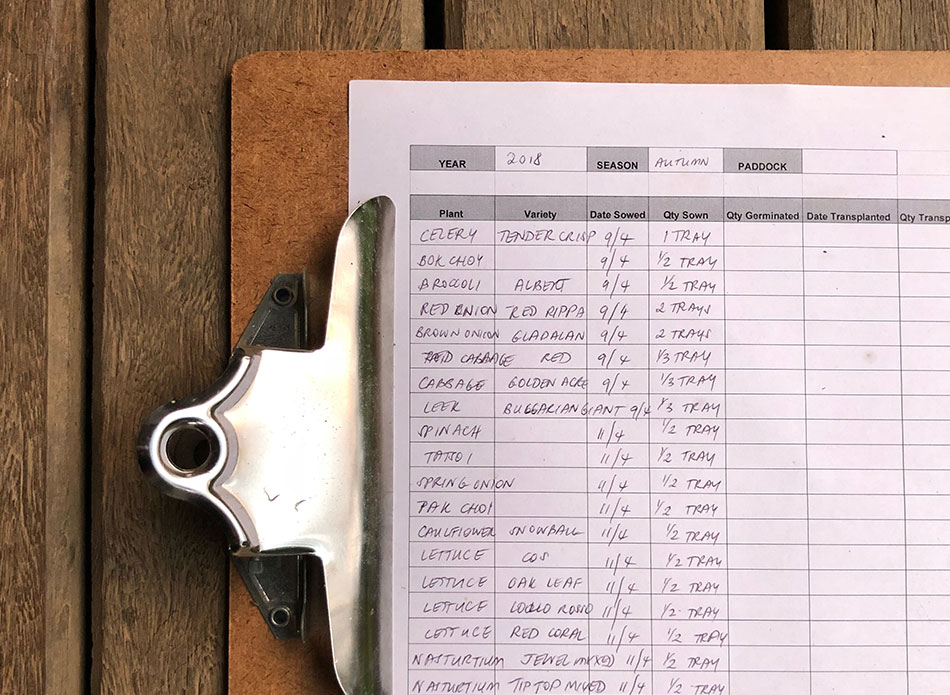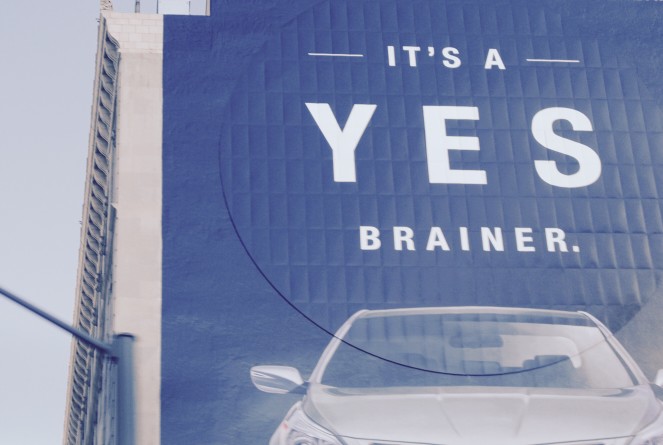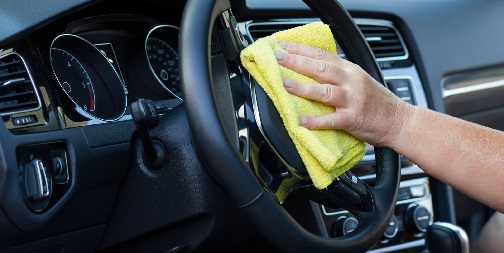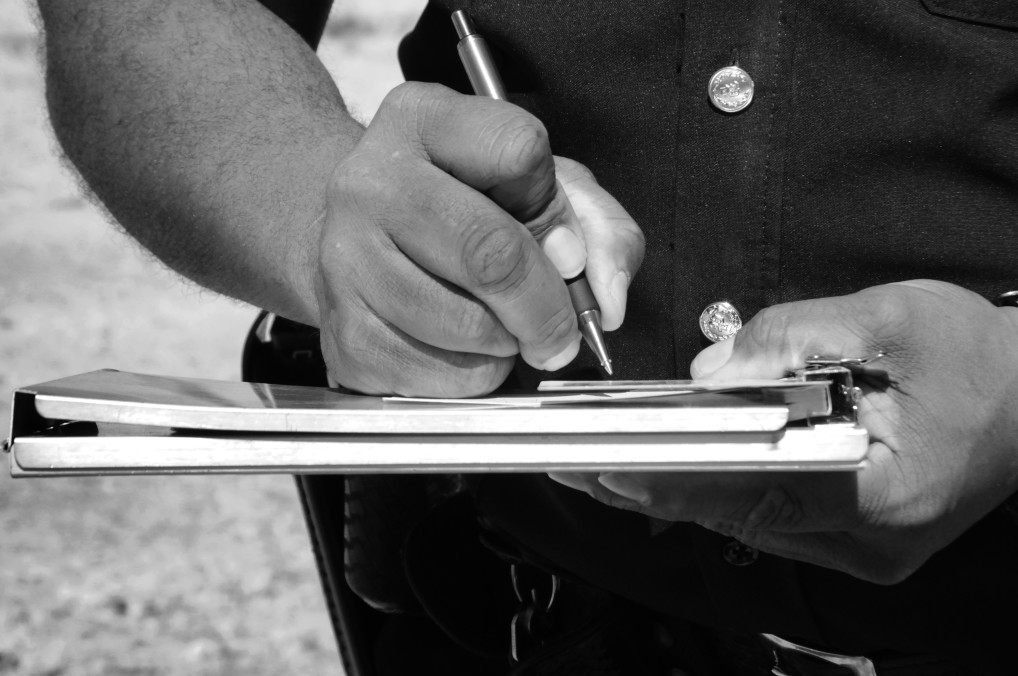TOP FL TRAFFIC SCHOOL QUESTIONS
You got caught speeding or making an illegal left turn in Florida, now what do you do?
The easiest, and usually smartest thing to do when you receive any type of Florida traffic ticket, is to take traffic school. What does that mean? We researched our Florida customer service database and pulled the top questions students asked about this topic. To make the process a little bit easier for you, we gathered the answers to those more-than-frequently-asked questions and printed them here:
Q: What is traffic school?

A: Traffic school in Florida, also known as a Basic Driver Improvement (BDI) course is a driver-related educational course one takes in lieu of receiving points on their driving record from a non-criminal moving violation.
Q: How long is FL traffic school?

A: Per the FL HSMV, traffic school is designed to be 4 hours long.
A: If you take it in a classroom setting, then you will be in there for FOUR HOURS.
A: If you take OUR ONLINE COURSE, you are only required to spend a minimum of 3 hours and 15 minutes in the course. You can complete it at your own pace.
Q: How does FL traffic school work?

A: Although every traffic school presents the FL HSMV Approved material in their own, unique way – FL traffic school basically works like this:
1. Student signs up and registers for traffic school
2. Student takes and completes the course
3. The traffic school reports the completion to the FL HSMV
4. The student submits the proof of Completion Certificate to their traffic court the DMV
5. Student’s traffic ticket is dropped and the points are eliminated
6. Student does not have to do anything else, but is encouraged to follow-up with the traffic court website to confirm their ticket was, “Dismissed By Traffic School.”
Q: How do I sign up for traffic school?

A: First, look here: http://www.flhsmv.gov/ddl/BDIS_providers.html to find an approved traffic school. We are listed under Traffic School by the Improv Comedy Club.
You can sign up for traffic school online, by phone (800-660-8908), by mail or in person. Make sure you pay the bail or fine from the ticket as well as the traffic school process fee.
Q. How do I request traffic school?

A. If you are eligible to take traffic school, you will see an option box on your ticket. By clicking that option box and paying the traffic school administrative fee, you are requesting/agreeing to take traffic school to dismiss your ticket.
You can do this by mail, phone or the court website.
Q: Am I eligible to take FL traffic school?

A: If your ticket and/or courtesy notice says that you are eligible to take traffic school AND you haven’t attended traffic school within 12 months AND have not taken it FIVE (5) TIMES within your lifetime (Florida’s Maximum amount of times you can take traffic school) – then you are eligible.
Q: Wait, how often can I take it?

A: You can take FL traffic school once every 12 months… but only 5 times maximum in your life.
Q: What do you do in traffic school?

A: FL traffic school is comprised of a combination of reading, listening and watching material about Florida traffic laws, defensive driving skills, car facts, traffic statistics and more. You will also take a final quiz at the end of the course.
Q: Can I fail the course?

A: Nope. This is a pass-only course. However, FL HSMV requires traffic schools to administer a 40 multiple-choice question final in which the student must get 32 out of 40 questions correct to pass. You are allowed unlimited attempts to pass.
Q: How do you take FL traffic school online?

A: You can take our MyImprov.com online course on any computer, phone or device that has internet access! It is mostly reading… therefore you will be scrolling down the screen for the most part and occasionally watch (optional-only) videos.
Q. Does traffic school erase the ticket and/or points

A. Beware of the words erased, disappeared, vanished and removed. Points and “The Ticket” are not “erased” from your FL HSMV record. Traffic school will prevent points from appearing on your public driving record, which prevents your insurance company, employer, or others inquiring into your driving background from seeing the violation.
Q: When is FL traffic school due?

A: FL traffic school due dates vary for each county. It ranges from 30-90 days from the date that the citation fine was paid. Check your courtesy notice to confirm!
Q: Do I have to pay for traffic school?

A: Yes. Yes, you do.
Q: But I already paid $7.00+ for traffic school when I paid my ticket!

A: That administrative fee was for the court, for the opportunity to take traffic school. You will pay the traffic school an additional amount.
Q: Ok, how much does it cost?

A: It depends on the traffic school, but did you know, you will get 4 FREE TICKETS to the IMPROV COMEDY CLUB upon completion of our traffic school 😉
Florida Drivers License Check
If you’ve been in a little bit of hot water, if you’ve got a few moving violations, if you’ve had some trouble making your insurance payments on time, then you may find yourself in the position of wondering whether or not your driver’s license is worth the paper it’s printed on. Good news! There’s ways you can check your Florida drivers license before you get back into traffic! Here’s how!
Step One: Go Here.
And there you are, you’re good to go!
It will tell you if you’re valid or invalid. It’s free, it’s simple, it takes fifteen seconds, or less if you’re a fast typist.
If you’ve misplaced your license, you still might have the number somewhere. Search your emails for mentions of it, look at old applications and paperwork, see if you still have the temporary paper ID they sent you. The website probably doesn’t care where you get the number.
Ordering your report from the official website for Florida Highway Safety and Motor Vehicles, the state’s DMV, will help you to get your information quickly. Note that there are a ton of unofficial websites clearly designed to trick users. They have URL’s like TheOfficialForRealDMV dot net with tiny disclaimers reading “Your (unofficial) guide to the DMV!” We can’t vouch for any of these sites. Maybe they’re on the level, maybe they really are useful guides. Or maybe they’ll ask for your credit card number and set you up with a ton of monthly fees to pay if you don’t catch on and have the payments blocked.
If a website doesn’t end with dot gov, then it does not represent a government agency.
The downside to checking your license through flhsmv.gov: You need your license number. If you’ve lost your driver’s license, then you’re going to have to figure something else out. You can contact them to make an appointment to make it easier, but you’re going to have to make an appointment. Of course, it’s just as well, since you’re going to want to get a new copy of your driver’s license before you go driving around, anyway.
Unless you’ve got a friend at the agency that can hook you up, you’re going to have to pay some small fees to get a hold of your records.
Fees
• 3 year driver history records – $8
• 7 year driver history records – $10
• Crash reports – $10
• Replacement license or ID card – $25
That’s really all you need to know: If you have your license number, use the website. If not, make an appointment and go in to check your license’s status.
HEY WAIT A MINUTE WHICH NUMBER DO I PUT INTO THE WEBSITE?
Your driver’s license is covered with numbers. The number you want to put into the website is the one on top (or at least that’s what Florida driver’s licenses look like as of the time of the writing). It probably looks something like this:
DRIVER LICENSE CLASS D
S582-848-72-828-0
Just put in the number, not the “DRIVER LICENSE CLASS D” part.
It really is as simple as that.
Checking without the driver’s license number on hand is a bit of a pain in the neck, but you don’t really want to be pulled over in traffic and not have your license on you anyway. You may have to go to Florida traffic school to dismiss the traffic violation and pay an additional fee for not having your license on you.
NOTE: You don’t need your driver history report in order to check the validity of your license. All you need is your license number and the link provided above.
Perform a quick and reliable FL drivers license check to verify the status and validity of your Florida driver’s license.
Conduct a definitive FL DMV license check to obtain accurate information about the status and validity of your Florida driver’s license
Ensure peace of mind by performing a definitive FL driver license check to verify the current status and validity of your Florida drivers license.
Obtain accurate and up-to-date information about your Florida drivers license by conducting a definitive drivers license check FL.
Florida licence check
Verify the authenticity and status of your Florida license with a definitive Florida license check, ensuring accurate and reliable information.
Easily check the status of your Florida license with a definitive check my license Florida, providing you with accurate and essential information.
Obtain accurate and reliable information about your drivers license in Florida with a definitive “check my driver’s license”, ensuring peace of mind and compliance with regulations.
Florida Groups Still Pushing For Distracted Driving Law
Democratic State Senator Maria Sachs has joined with state law enforcement groups to create and pass a new state law which prohibits texting and driving.
Florida is among just a handful of states with no state law prohibiting texting and driving–or any distracted driving law whatsoever. Some in the state, including law enforcement groups, business groups and driver safety advocates, have asked state legislators to create a new law as a matter of public safety.
So far state legislators have been resistant to a distracted driving law. Many opponents to a distracted driving law say such a law would unfairly encumber business people in a state where business is the backbone of an economy transitioning from one which is service-based to a more technology based economy. They also question whether such a law would cause issues for the state’s millions of tourists who visit the state each year.
Public safety advocates say such arguments don’t hold water because they don’t address the fact that distracted driving is causing untold numbers of deaths each year and costing the state millions of dollars in unneeded expenses. They cite statistics from the Centers for Disease Control and Prevention, the National Highway Safety Institute and U.S. Department of Transportation which indicate that traffic collisions and costs associated with distracted driving have been rising consistently the past several years and continue to trend up.
Now that Senator Sachs and others have joined the group pushing for a distracted driving ban in Florida it seems much more likely to pass. Public polls indicate that more residents in Florida are in favor of a ban than oppose one. It seems likely that before the end of the year such a bill will be crafted and put before the Florida legislature where it seems destined to pass.
Florida Woman Faces Bribery Charge After Traffic Stop
A Florida woman learned the hard way that when an officer pulls you over and starts to write you a ticket, you should try to ‘buy’ your way out of it.
This might seem like common sense to defensive drivers, but not everyone is a defensive driver.
According to Florida police they pulled over a car for failing to yield to merging traffic and sideswiping another vehicle. As they were discussing the situation with the driver of the car, the female passenger began making overtures of persuasion. Specifically, she offered the police officers $100 each (there were two of them present) if they would not write any tickets and just let the couple go. Instead of getting a deal from the police officers, they arrested the driver on a charge of reckless driving, and took the female passenger into custody for attempted bribery of a police officer. A felony.
The best advice if you are pulled over by police is to be polite, be patient and take your medicine. The police officer is there to enforce the law. If you have violated the law you have to pay the price. If you disagree with the facts presented by the officer there is no point in arguing with them in the street. All you have to do is accept your citation, collect your evidence and be prepared to meet them in court. Once before a judge you can present you evidence and defend yourself against the ticket.
Arguing with a police officer is simply no way to wiggle out of a ticket. And offering them a “gift” of any kind in exchange for letting you out of a ticket is only going to get you into more trouble. Period.
Florida Driver Gets His Sign
Last week a Florida man was pulled over by police after striking a traffic sign. All doubt as to whether or not the man actually hit the sign was resolved when police saw a piece of the sign sticking out of the man’s head.
That’s right. Leslie Newton was driving east of state road 16 when he apparently struck a road sign. Rather than stopping at the scene and alerting authorities he continued driving. Police witnessed him lose control of his gray Camaro, strike the median and strike the traffic sign, but it took them several minutes to get the man to pull over and stop. When he did, that’s when police say they noticed a piece of the street sign sticking out of his head.
Newton was rushed to a nearby hospital where he was reportedly in critical condition. Police are unsure exactly why he lost control of his vehicle in the first place although they have suspicions that the initial crash was alcohol related. The alcohol might also explain why Newton did not immediately stop after the collisions and why he didn’t stop when he realized he had a piece of a traffic sign sticking out of his head.
Alcohol does tend to have the affect on people. It makes them act in ways they might not normally act; impairs their judgement and their ability to tell a good idea (like NOT driving drunk) from a bad idea (driving around with a piece of a street sign sign in your head.)
Once (if) Newton is released from the hospital police will no doubt want to speak with again regarding his accident. It is likely that while he has been hospitalized a blood sample has been drawn and will be used to determine if he was driving while under the influence of alcohol. If he was DUI, he’ll have to pay some hefty fines, might lose his driving privileges and have some points added to his license.
Florida Supreme Court Taking Breathalyzer Tech To Task
This week the
Florida Supreme Court made it clear that the technology used to create breathalyzers was not off-limits to scrutiny, and that defense attorneys would likely get an opportunity to test the specific algorithm used to determine how much alcohol was present in a person taking the test.
This opens the door wide to defense attorneys representing drug driving suspects across the state, and essentially puts the breathalyzer manufacturer on trial to defend its technology.
It’s little secret that drunk drivers cause more vehicle collisions and more traffic fatalities than drivers who are not under the influence of alcohol. What is less clear is whether small amounts of alcohol make a difference, and if so, how much is too much and how can a policie officer truly determine if a driver is over that limit without drawing a blood sample on the spot?
Currently only one type of breathalyzer device has been approved for use in the state of Florida, the Intoxilyzer 8000 built by a Kentucky company called CMI Inc. So far that company has successful defended it software claiming that it was crucial to their success that the specific algorithm they use not be made public. Up until this week trial judges have ruled in favor of CMI saying they agreed nothing would be served by releasing that information.
But now the Florida Supreme Court has ruled against these trial judge orders and seems poised to force CMI to release its ‘secrets.’
What’s at stake are not only a few individual drunk driving cases around the state that are currently being decided, but also the future of this technology as it is used today. Breathalyzer technology allows police to make spot checks of blood alcohol content on drivers they suspect of being under the influence of alcohol. It allows them to have a scientific tool at their disposal to determine whether or not a driver is intoxicated and by how much.
If these tools are somehow found to be unreliable, or faulty, or their integrity questioned, we might see one less tool made available to police in their effort to keep the roads free of drunk drivers.
Florida Drivers: Watch For Panthers
Opossum, raccoon, even an occasional armadillo or two; Florida drivers have seen it all, but now state wildlife officials are warning them to be on the lookout for the rare Florida Panther.
Not so long ago Florida Fish and Wildlife Conservation Commission officials estimated there were fewer than 50 of the endangered species left to roam the scrub and swamps of the Sunshine State. But in just a few a couple short decades the Florida Panther has made a stunning recovery. Well, stunning might be a stretch, but let’s say that there are enough these rare (and still endangered) animals left in the wild that at least a dozen or so are killed every year on Florida roads.
The FFWCC wants drivers to slow down and use caution any time they are in areas where these elusive panthers are known to live and breed, especially during breeding season. The animals are known to be active at night and because of their small size and camouflage they are notoriously difficult for drivers to spot and evade. The best way to avoid these creatures is to expect the unexpected and slow down if you are in an area where Panthers are present.
Defensive drivers know that when confronted with an animal in the road they must resist the urge to swerve for fear of colliding with another vehicle, but that doesn’t mean they shouldn’t use caution when in an area where animals are likely to be present. Although t might seem unlikely an animal might cause damage to your vehicle, it is possible. In fact, colliding with an animal in the roadway might not only damage your vehicle, but could cause you to lose control and have an unexpected collision.
If you’re driving in Florida do yourself and the panthers a favor and just slow down.
Florida Closer To Distracted Driving Ban
The first ever Florida Distracted Driving Summit held last week in Tampa bay, brought together 3,000 people-police, emergency victims, victims of vehicle collisions caused by distracted driving, and public educators-all of whom are in favor of Florida having its own ban on distracted driving.
So far, 44 states have already passed laws limiting the use of handheld devices by motorists in one way or another. Some specifically target texting while driving, while others completely forbid the use of any handheld device for any reason. These laws run the gamut as do the fines and punishment which comes with violating the law. Florida is one of the most populous states without a distracted driving law. Texas is also without a distracted driving ban, but as is happening in Florida right now, legislators are beginning to cave to public pressure that they draft a statewide ban in one form or another.
There are communities around both Texas and Florida where distracted driving is illegal. In fact, state legislatures in both states have deferred the issue because they said they felt it was best left to municipalities to decide what would work best in their individual communities. This has proven problematic at best. A patchwork of laws regulating driving behaviors now crisscross Florida and Texas, leaving drivers confused and frustrated that they can’t just have one law for the entire state.
Businesses in South Florida have also organized successful campaigns to put their employees on notice that although the state may allow distracted driving, they do not and employees who insist on driving distracted risk not only their lives but also their jobs.
Florida legislators expect to have a final draft of a new law regulating distracted driving statewide finished early next year and so far, it seems likely the new law will pass with support from both parties.
FHP Cracking Down On Aggressive Drivers
According to the
Florida Highway Patrol, in fatal crashes involving cars and commercial trucks, driver error is the cause of 88 percent of the crashes. This has prompted the FHP to launch a new campaign aimed directly at aggressive drivers of cars and trucks, and try to limit the frequency of these types of crashes.
This week the FHP launched Ticketing Aggressive Cars and Trucks to reduce commercial motor vehicle-related crashes by focusing on increased enforcement and driver safety education. This combined effort aims to both education drivers of cars and trucks and identify those drivers who fail to follow safe, defensive, driving behaviors.
According to a press release from the FHP:
?The Florida Highway Patrol is committed to reducing the number of commercial vehicle related crashes,? said Col. David Brierton, director of the Florida Highway Patrol. ?Crash reduction can be achieved if we all share the highway with each other and avoid aggressive driving behaviors.?
Troopers will be on the lookout for violations attributed to aggressive driving such as: following too closely, unsafe lane change and speeding. The campaign will consist of four enforcement and education phases, the first of which will be in north Florida between Pensacola and Ocala Nov. 12 – 16. Three additional phases will take place in other areas of the state through July 2013.
The FHP campaign will use billboard messages to increase awareness of safe driving behaviors for cars and trucks and of the now increased risk of receiving a ticket for violating safe driving practices. FHP will also work closely with the Florida Trucking Association to provide education programs at schools and community centers around the state, also aimed at educating drivers on how to share the road safely with trucks.
For drivers this is a time to focus on driving behaviors and understanding that although they are called “accidents” the reality is most vehicle collisions could be avoided if drivers focused more on their own behavior and less on getting their own way on the road.
Florida Redesigning License Plates For Traffic Cameras
Florida communities have been quick to make use of new automated traffic cameras to catch drovers who fail to stop when the light turns red. But there’s been a slight problem with this idea: Florida license plates have raised numbers and letters and a special surface which makes it difficult for the cameras to adequately capture a usable image. Some estimates are that the state has been losing as much as $3 million a year in fines because of this problem with the existing license plates, prompting legislators to make a change.
Don’t get your hopes up, the traffic cameras are not going away, just the license plates. That’s right, the state of Florida is preparing to issue all new license plates in an effort to make certain those traffic cameras (plus the new ones expected to be installed across south and central Florida) can capture the image perfectly.
Traffic cameras are the bane of any driver who likes to push their luck when the lights start to change, but they have proved to be a boon for police and communities that use them because they work faster than the human eye–and they do it automatically so no police officer has to sit there to catch red-light-runners.
Defensive drivers know better than to run a red light, or fail to yield when the lights begin to change. They understand just how dangerous it is at every intersection and take precautions against collisions. But not all drivers are defensive drivers and these automated traffic cameras help separate the wheat from the chaff when it comes to safe and unsafe drivers. Not everyone is happy with these systems, however. Some groups claim they are infringement on personal rights, but courts have repeatedly ruled that these automatic devices are merely there to enforce the laws drivers should be following any way.
Florida Police Cracking Down On ‘Grid-Lock’
In Florida, police are taking a closer look at drivers who fail to stop properly at the beginning of an intersection when the lights have changed. The law states quite clearly that drivers not permitted to cross into ‘the box’ once the lights have change. It also prohibits them from lingering inside ‘the box’ when traffic prevents them from continuing through to the other side.
Drivers who are caught blocking an intersection will be fined up to $500 and receive up to three points their driver’s license.
Police say drivers who block intersections create dangerous situations for other drivers, inhibit the ability of businesses to conduct business and generally create a worse traffic situation in the already over-crowded state.
To counter this situation police are enforcing existing state laws which require drivers to not block an intersection under any circumstances. It can be very tempting for a driver to inch their way into an intersection, believing that the little bit of extra space available is plenty for their vehicle, or that being caught in the middle of the intersection is not their fault because the light was green when they entered it.
Defensive drivers understand one other key factor when it comes to driving safety: courtesy. Being courteous driver means, among other things, not blocking cross traffic from getting through just because you feel entitled to the space. Road rage continues to be a big problem in the U.S. and often it is triggered simply by a lack of courtesy between drivers. Just by being a courteous driver, following all state and federal traffic regulations you can avoid a big problem with other drivers and might avoid an even bigger problem with police in Florida who have taken an interest in drivers who lack “courtesy” and don’t obey the law.
You have been warned.
Florida Cops Actually Do Use Planes To Spot Speeders
You have no doubt seen the signs warning drivers that aircraft might be in use to spot speeders or reckless drivers. It is likely you glanced skyward when you saw the sign, slowed for an instant, then went right back to doing whatever you were doing because you didn’t see an aircraft in sight.
But take heed: the Florida Highway Patrol routinely uses single engine aircraft to monitor long stretches of highway and regularly spots and cites drivers they capture on radar exceeding the posted speed limit.
The advantages of using an airplane, or any aircraft, to monitor drivers are many, not the least of which is the fact that an aircraft can record your speed and observe your vehicle from a much further distance than a patrol car stopped along the side of the road. Aircraft have an unimpeded view of your vehicle from hundreds or even thousands of feet in the air. That means long before you see their aircraft or hear their aircraft they have already recorded your speed and license plate information and notified troopers on the ground to pull you over and issue you a citation. They might also make a note of whether or not you were driving “aggressively” or “recklessly.”
The fact is, police have a number of tools at their disposal to track and record drivers who might be flaunting traffic rules. These tools range from radar guns to aircraft to automatic traffic light cameras. Yes, the communities served by these ticketing devices do receive revenue as a result of the citations they offer, but the fact is, reckless drivers and speeders cause more collisions which end up costing the community money in emergency services and road repairs.
So the next time you hit an open stretch of road with no trees, no landmarks and no cops in sight, before you put the pedal to the metal remember, it’s not just what you can see, but what you can’t see. The police might be watching you from the air; trying to keep you safe, sometimes from your own recklessness.
Florida Drivers Might See Insurance Premium Drop
Florida vehicle insurance providers had until October 1 to show they had decreased rates by 10 percent or more. Those companies which could not meet the 10 percent decrease mandated by the state must explain why in writing and have a verified cause.
The move is all part of legislators attempts to slow the gradual increase in state automobile insurance rates and start to roll back what had been a regular series of rate increases caused, some say, by wildly inaccurate PIP (personal injury protection) laws.
PIP reforms will largely take effect Jan. 1. According to the press release, these changes will provide the full $10,000 for medical emergencies only, and those needing non-emergency treatment will have a limit of $2,500. The laws will also exclude massage therapy and acupuncture as treatment options.
On average Florida drivers should see a reduction of about $30 per year. That might not seem like much but the added benefit is that rates are much less likely to continue their gradual climb. This has been happening at a steady pace in the Sunshine state and many people, consumers and consumer advocates, said a change was needed before the burden became too much.
In fact, even many Florida automobile insurance providers said the change was needed because higher rates were causing many people to avoid buying more than the bare minimum coverage. This hurt their bottom line as much as much as the high PIP rates hurt consumers. By being able to provide a decrease in rates, and a plan for keeping those rates from consistently climbing higher the Florida legislature found a way to help consumers and the insurance industry at the same.
Or so they hope. It will take at least a year before anyone will know exactly how much help the new PIP rules provided for consumers and perhaps even longer before we know if the decrease in rates helped insurance providers sell more insurance. But many conclude that one or another the move will benefot at least one group if not the other.
Need A Florida Driver’s License? Visit The Tax Collector
In October of last year the state of Florida changed the people responsible for issuing state driver’s licenses. It is now the duty of the local tax collector to issue Florida driver’s licenses and some folks don’t exactly like the idea.
As you might expect, state tax collection offices already had a great number of duties to perform, now they also have to issue driver’s licenses. Fortunately these offices have been working hard to streamline the process by releasing public information notices to the public about the ability to schedule appointments in advance and remember to bring all the proper identification needed.
They have also been notifying residents about the web site available to allow a one-time renewal of their driving privileges. In all, many have said the new change to tax collectors issuing driver’s licenses has worked better than expected, even if there are still a few bugs to work out. (Many have complained about long wait times at offices.)
The best advice is to be prepared and set an appointment if at all possible:
here are the documents you need:
-A certified state copy of your birth certificate…unless you have a valid passport
-Social Security card or W-2 form
-Two proofs of your residential address (utility bills, bank statements will work.)
If you have legally changed your name by marriage or court order, you must submit the original or a certified copy of your marriage certificate(s) or court order(s). No photocopies will be accepted unless certified by the issuing authority. You must show documentation of all name changes. If you are a non-U.S. citizen, additional documentation is needed.
In addition to the information you must provide to change your name, be advised that you will also need to provide primary identification documentation. Out-of-state driver licenses will no longer be accepted as primary identification.
Florida Turnpike Gets New, Safer, Cable Barriers
Florida’s Department of Transportation and the Florida turnpike authority are working to increase safety for drivers of the Florida Turnpike by installing new, enhanced cable safety barriers. These new cable barriers are designed to withstand more intensive crashes of vehicles traveling at higher rates of speed.
Believe it or not, among the most common vehicle collisions on highways are those which are caused when one vehicle crosses the median colliding with oncoming cars. Even a simple barrier is often enough to prevent a vehicle from crossing over, but in some cases more serious barriers are needed. And of course, the stronger the barrier the better it can protect vehicles on both sides of the highway from colliding.
Florida roadways are among the most congested in the country, especially in central and south Florida, where annual tourist visits cause severe spikes in traffic congestion, with many drivers being strangers to the area unfamiliar with roadways and the possible hazards or detours they might face while they search for an amusement park, hotel or the beach.
The work is taking place on both the northbound and southbound sides of Florida’s Turnpike between mile marker 234 and the Yeehaw Junction exit. The installation of the piling is critical to the strength of the guard rail assembly. The concrete piles are driven flush with the ground some being embedded 25 feet and some pile as little as 15 feet into the ground. Vehicles that veer off of the highway in these areas will be protected from entering wetlands and forests along Florida’s Turnpike. The work of driving the pile requires special equipment including a crane, diesel pile driving hammer, leads and a heavy steel template.
HOV Lane Markings Confuse Some Florida Drivers
It was announced recently that the high occupancy vehicle lanes along Interstate 95 in south Florida from Miami Gardens Drive to Sunrise Boulevard would be removed while road construction in the area was completed. Unfortunately for drivers, although the Florida Department of Transportion made the announcement months ago signs marking the HOV lanes remain and many drivers have reported being confused about whether or not they could drive in those lanes at all.
The problem apparently stems from the fact the construction crew responsible for working on the road has experienced some unexpected delays. That means that although they said the HOV lanes would be open to all while other lanes are closed due to construction, the construction has not yet begun. This is where the problems have come from.
The high occupancy vehicle rules limit the left lane to carpools of two or more people, motorcycles and registered hybrids from 7 to 9 a.m. and 4 to 6 p.m. weekdays. The fine for violating the rules is $165 in Broward.
So far, the Florida Highway Patrol has been lenient when it comes to enforcing the HOV lane rules, at least in areas where the roads are not adequately marked. But once construction is complete, and in areas where construction is not underway, drivers should use extreme caution and err on the side of caution.
















 Live Chat
Live Chat



